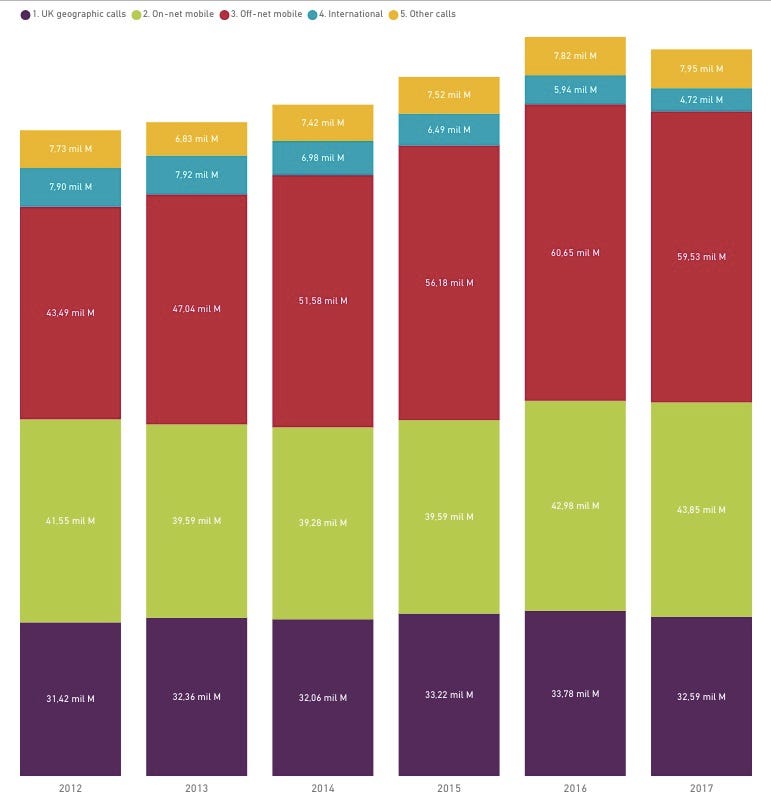Latest news about Bitcoin and all cryptocurrencies. Your daily crypto news habit.
WhatsApp has launched it’s Business APIs… now what?
The strategy around Google RCS becomes even more unlikely for telcos
This week WhatsApp finally announced its Business API. This is not a surprise, it was expected for WhatsApp to move in this direction for monetization since at least 2 years ago. But, as I have discussed before, this gets WhatsApp in the space telcos are trying to get into via the RCS initiative. As I said then:
Google may not be expecting to fight with WhatsApp with RCS, but they will have to fight with WhatsApp for Businesses in this market.
When the news broke out I got asked (again) “So, what should a telco do about RCS?”. I though I was clear about this in the past, but I will try to make it clearer via the two options I see:
- Do Nothing
- Do as little as possible
Do Nothing
The personal communication space has been moving away for telcos for a while, and at this stage an initiative like RCS that is trying to catch up with current customer expectations on communications has little opportunities, so the best is not to waste more efforts on that.
This is reinforced by recent developments, like Telefonica selling their OpenTok platform to Vonage (something quite close to my heart), or numbers in the UK showing pure mobile voice usage, the main telco personal communications service, peaked in 2016.
Not only traditional telco communications are being replaced, but the traditional toolsets employed in the industry (standardization, complex interoperability, deployment via partners) are hurdles that will impede evolve the offering in they way customers require nowadays.
In the meantime, players like WhatsApp have created a strong foothold in the customer space. WhatsApp has over 1.5 B users, which they will start now monetizing.
About a year ago I explored three aspects of WhatsApp strategy that needed evolution: their need for multi device support to address smartphone disintegration, their need to evolve the proposal in real time communications and the monetization via business communications. They have now implemented two of those, with their Business API support and group voice and video communications. (I don’t particularly like the experience for that last one, but maybe this is also a lean approach to be able to scale their multi-streams support before creating the right solution:
body[data-twttr-rendered="true"] {background-color: transparent;}.twitter-tweet {margin: auto !important;}
WhatsApp group call/video call support was something needed, but somehow I feel the 4 people limitation is too arbitrary and has the consequence of not providing the right UX: turn a group chat into a (brief) call rather than simply adding participants to a 1:1 one.
— @jserna
function notifyResize(height) {height = height ? height : document.documentElement.offsetHeight; var resized = false; if (window.donkey && donkey.resize) {donkey.resize(height); resized = true;}if (parent && parent._resizeIframe) {var obj = {iframe: window.frameElement, height: height}; parent._resizeIframe(obj); resized = true;}if (window.location && window.location.hash === "#amp=1" && window.parent && window.parent.postMessage) {window.parent.postMessage({sentinel: "amp", type: "embed-size", height: height}, "*");}if (window.webkit && window.webkit.messageHandlers && window.webkit.messageHandlers.resize) {window.webkit.messageHandlers.resize.postMessage(height); resized = true;}return resized;}twttr.events.bind('rendered', function (event) {notifyResize();}); twttr.events.bind('resize', function (event) {notifyResize();});if (parent && parent._resizeIframe) {var maxWidth = parseInt(window.frameElement.getAttribute("width")); if ( 500 < maxWidth) {window.frameElement.setAttribute("width", "500");}}
).
Do as little as possible
So what if in the end Google’s support for RCS makes it some sort of relative success? What if some business would invest in reaching users in some Android devices and some carriers rather than going for the almost universal coverage WhatsApp brings? Well, maybe it is not crazy to support it with low exposure and minimal investment. But here the key is that minimal investment.
If a telco wants to launch RCS support, they should use the full Google Cloud solution. Do not try to use local IMS infra because:
- Even if there is already an IMS infrastructure in place, supporting it, evolving it and keeping it up to date with the new features will end up being more expensive than the cost this bet deserves.
- Keeping local infrastructures to deal with the competition and evolution of a global product goes precisely against the supposed advantage that Google as a new actor brought into RCS three years ago.
Letting go is hard
But even this (letting go) will be complicated for some telco technology departments. The millions invested in the IMS infrastructure that was supposed to support RCS and that today is fundamentally used for the VoLTE service (those voice minutes that are going down) and little else, pushes this mindset. The feeling is that to justify those past investments this “asset” (the existing IMS infrastructure) should be leveraged. But, in reality, using that asset would become another hindrance for that hypothetical RCS success, because it will further slow down its evolution.
Some will talk about the opportunities of coordinating the voice service with the RCS messaging thanks to the shared control layer, or about the future services like the promised ViLTE (Video over LTE). But the truth is that this is not the future, WhatsApp launched this a long time ago (long time for market perception at least), and ViLTE has been dead for a while.
WhatsApp has launched it's Business APIs… now what? was originally published in Hacker Noon on Medium, where people are continuing the conversation by highlighting and responding to this story.
Disclaimer
The views and opinions expressed in this article are solely those of the authors and do not reflect the views of Bitcoin Insider. Every investment and trading move involves risk - this is especially true for cryptocurrencies given their volatility. We strongly advise our readers to conduct their own research when making a decision.

